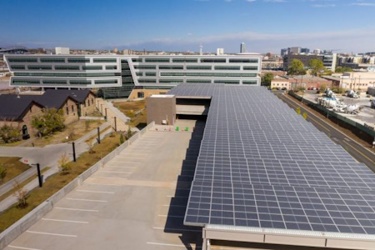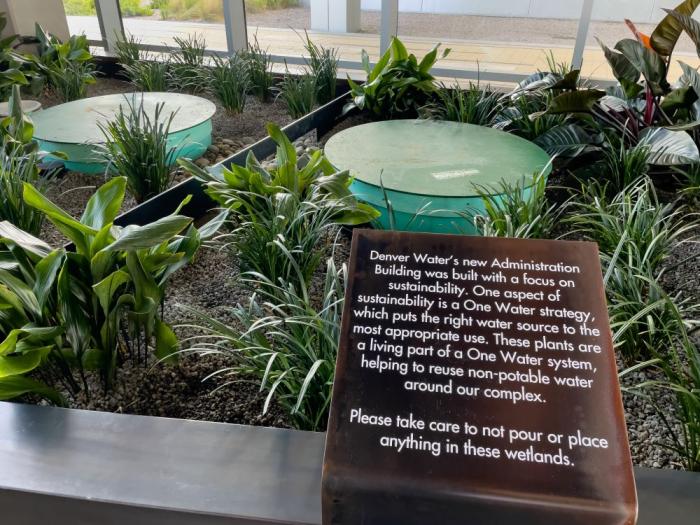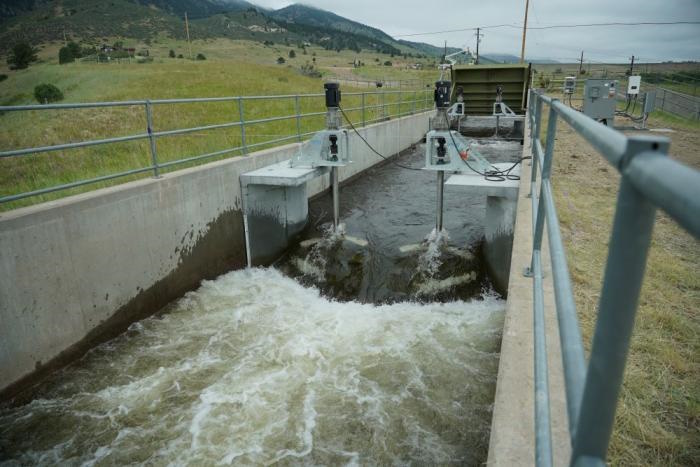Denver Water Sets Net-Zero Carbon Emissions Goal For 2030

By Todd Hartman
The Denver Board of Water Commissioners approved a resolution today committing Denver Water to a net-zero carbon emissions goal by the end of 2030, the utility’s latest push toward sustainable operations in its ongoing work to address the challenges of climate change.
Achieving the goal will require Denver Water to rapidly deploy renewable energy generation across its facilities, continue to increase energy efficiency, electrify its buildings and fleet, and explore and adopt carbon removal technologies aligned with its mission.
“Denver Water has a front row seat to the impacts of climate change, and its effect on the reliability of our water supply,” said Dominique Gómez, Board President for Denver Water. “We have long prioritized our environmental stewardship, and we now have an enormous opportunity to accelerate our work on reducing our climate impact, which will also build resilience in our system and reduce our operating costs.”

Denver Water is on track to meet a 2025 interim goal of cutting its carbon emissions by 50% from 2015 levels. It has made dramatic improvements in energy efficiency, recently began adding electric vehicles to its large fleet and generates significant electricity using hydropower at several of its dams and tunnels, as well as solar power at its Operations Complex in Denver.
In 2024, Denver Water completed its Northwater Treatment Plant near Golden, which under most conditions will generate sufficient renewable energy to power its own operations and provide excess electricity to the grid. Denver Water heats and cools its newly built Operations Complex in Denver using natural temperature variations in water pumped through the building in place of natural gas.

These features are also designed to improve Denver Water’s operational resiliency, reducing the utility’s dependence on the power grid, protecting it from outages during extreme weather events and ensuring it can continue to treat and deliver water during emergencies.
“As an anchor institution in Colorado, Denver Water can and should play a leadership role in reducing energy use that contributes to a warming climate,” said Alan Salazar, CEO of Denver Water. “It makes sense not only as we see a more erratic climate threaten a dependable water supply but as a signal to Coloradans that all of us must, to the extent we can, take steps to limit our carbon emissions.”

“Denver is fortunate to have a forward-looking utility that recognizes the urgency of addressing climate change while continuing to meet the needs of a growing and dynamic community,” said Denver Mayor Mike Johnston, in a letter of support for the initiative. “We look forward to exploring ways in which our organizations might collaborate on carbon-reduction strategies.”
The utility has long been working toward net-zero emissions. Most recently, Denver Water set and met a goal to cut 1 million kilowatt hours of energy use within a year. And in 2020, Denver Water did reach net-zero energy across its operations for that calendar year excluding fuel used by its vehicle fleet.
“We know this is an ambitious goal. It’s not going to be easy to meet, and we’re keeping our customers and our rates in mind as we make changes,” said Kate Taft, sustainability manager for Denver Water. “But the sooner we make these changes and get to net zero, the sooner we start seeing the financial savings and the environmental benefits, which is why we want to be as aggressive as we can realistically be.”
